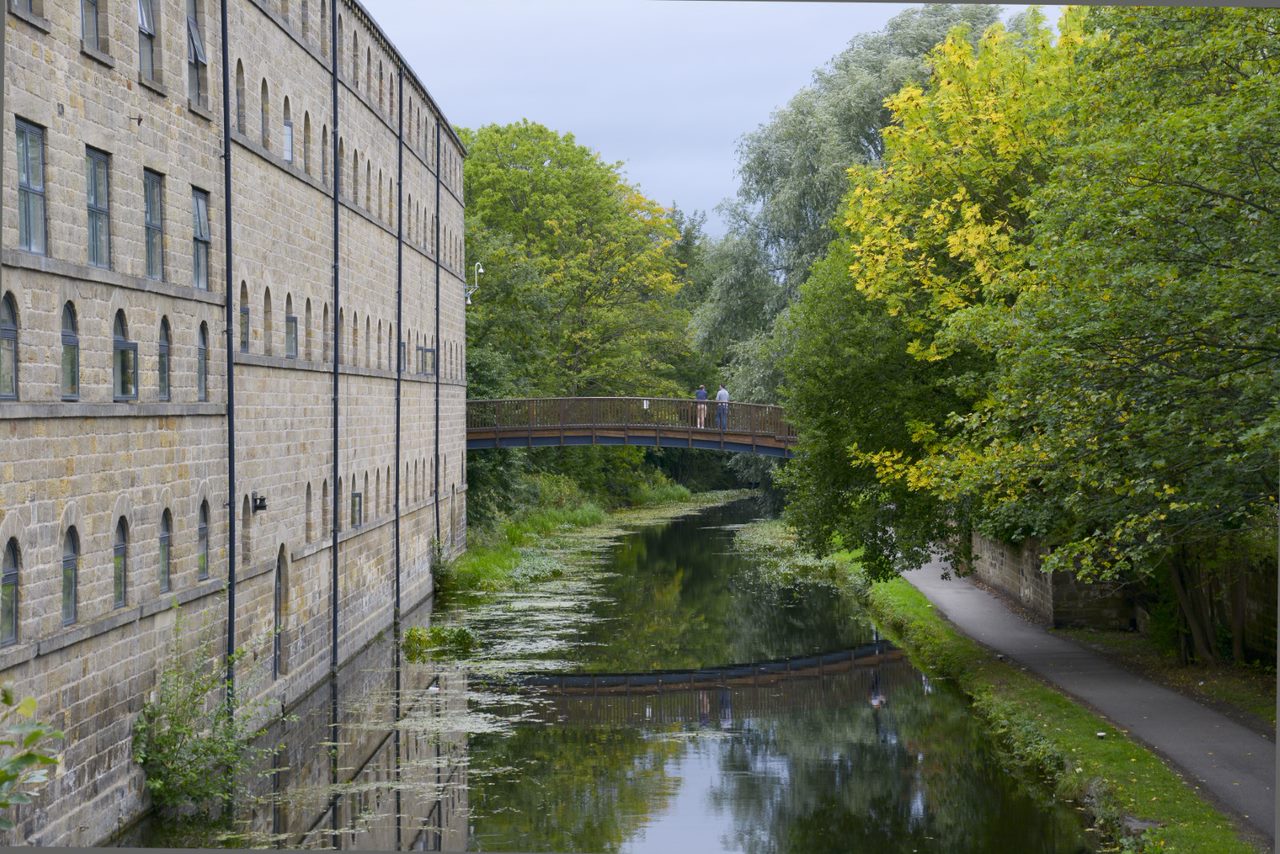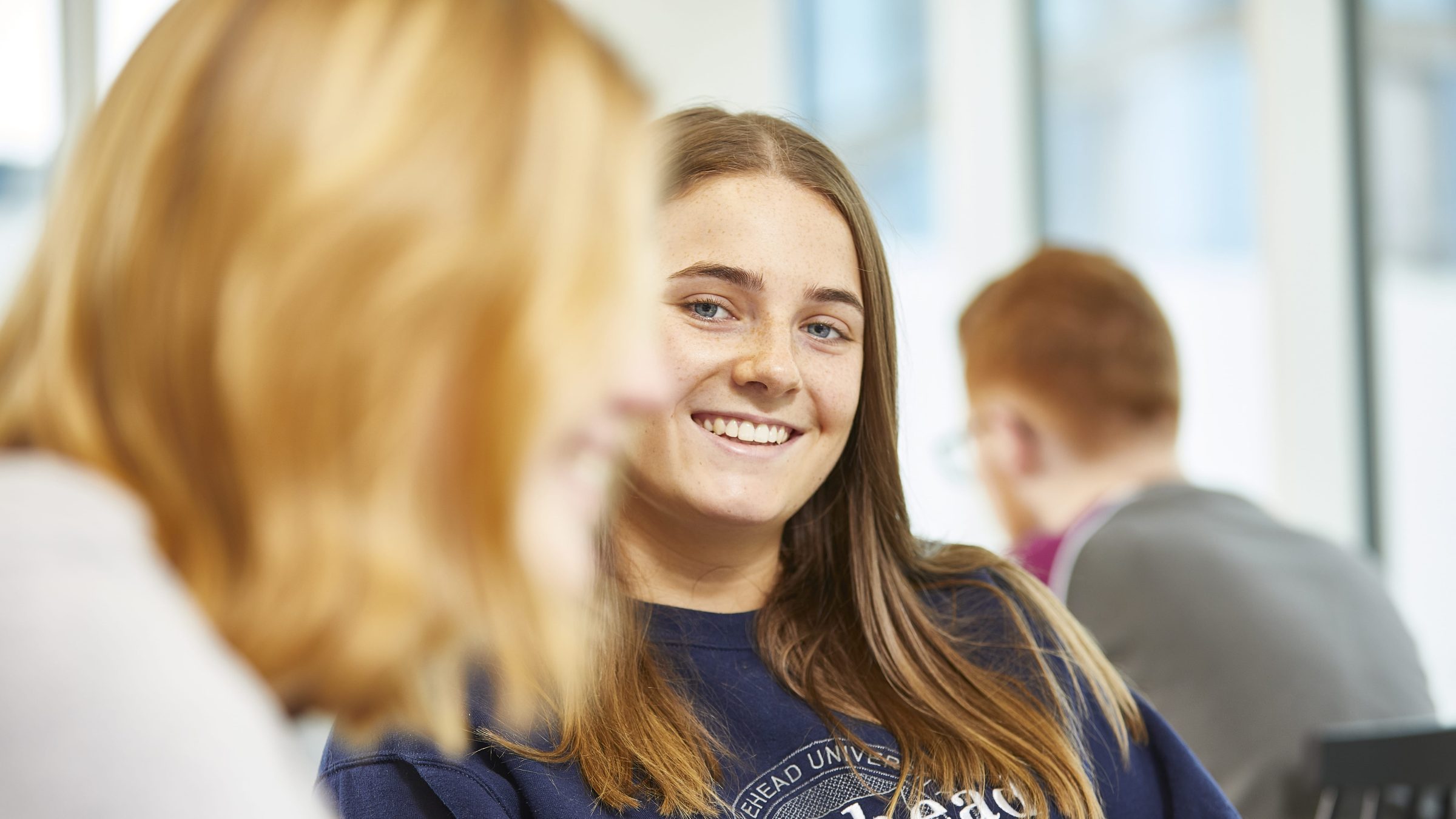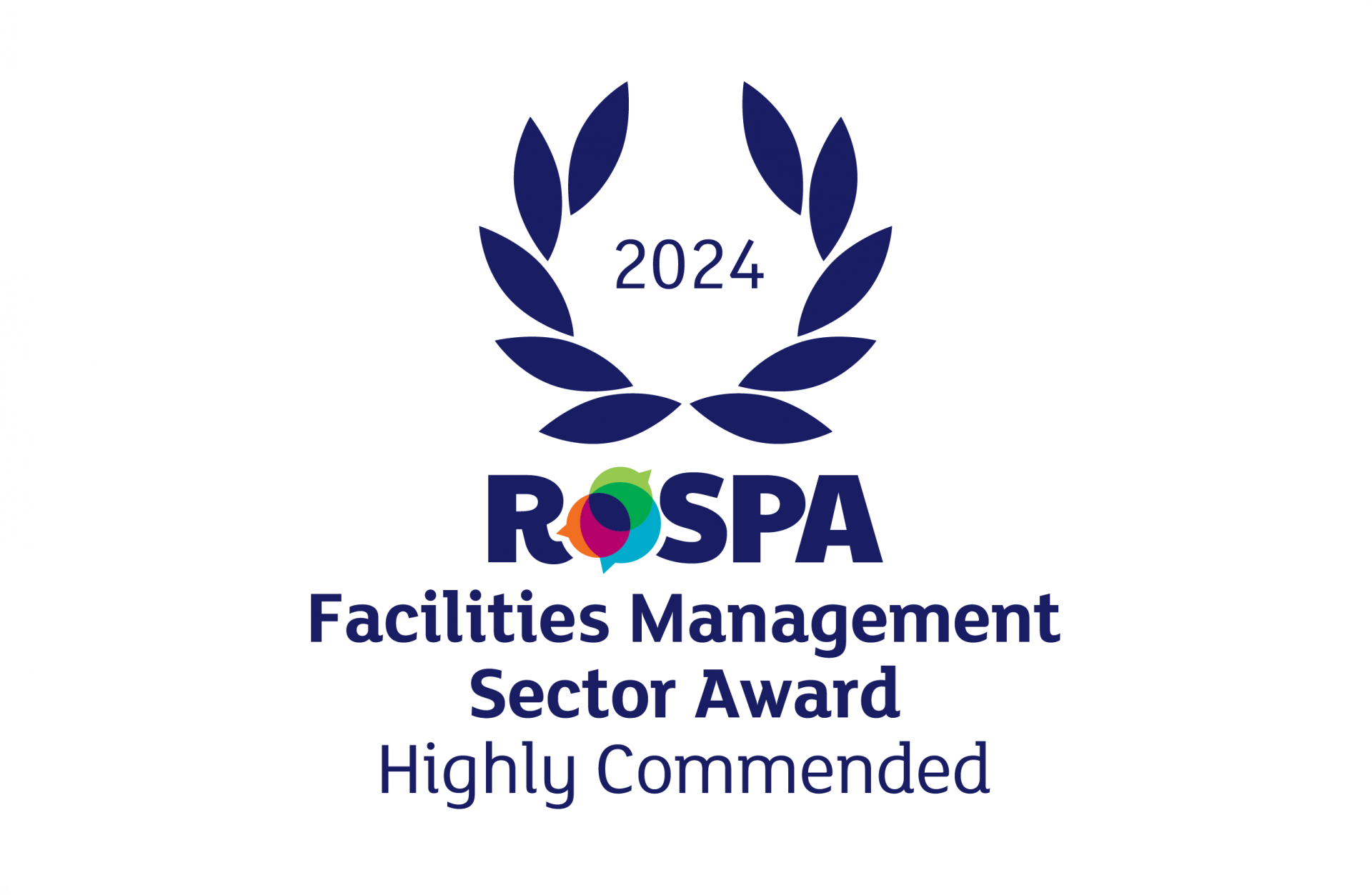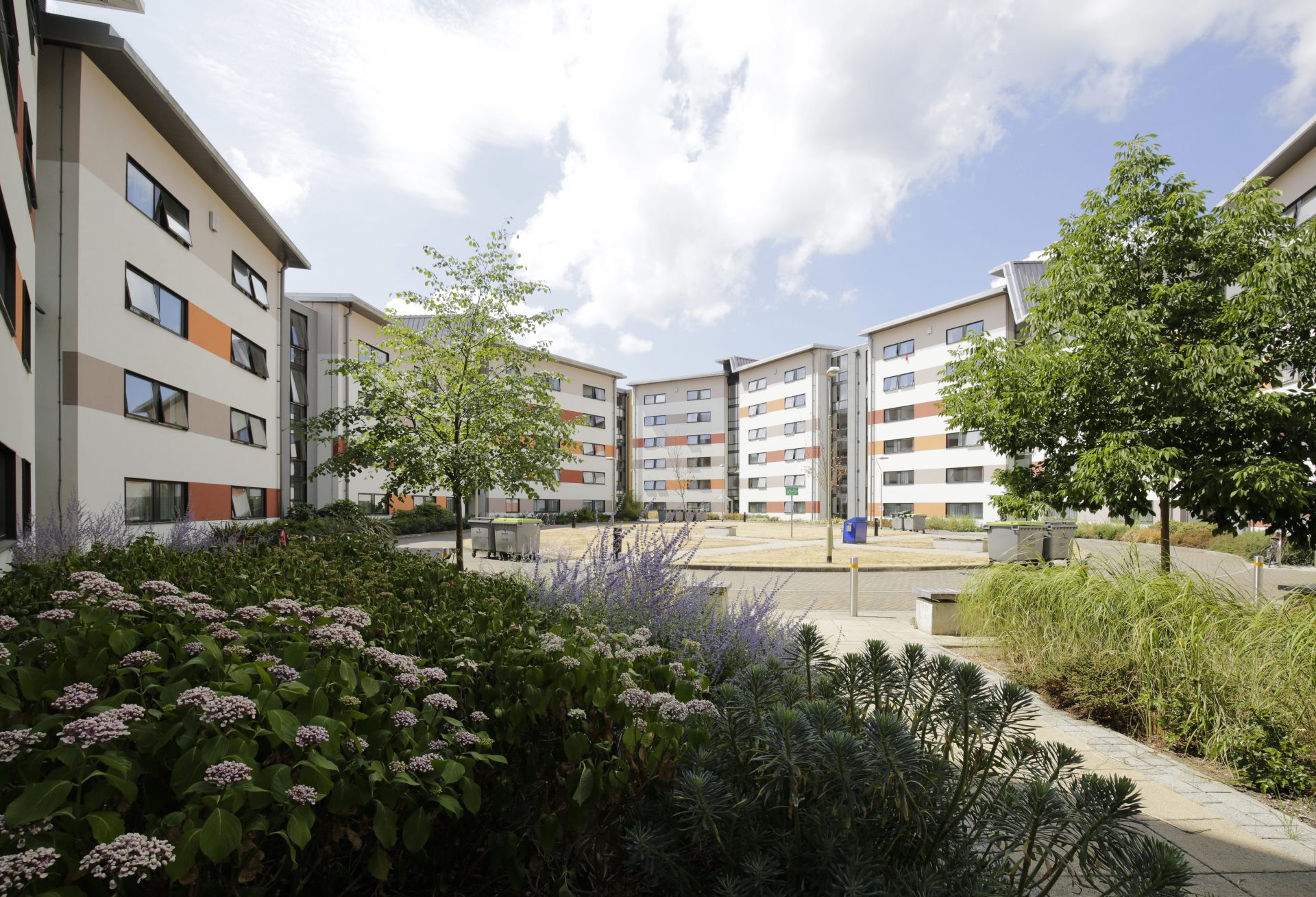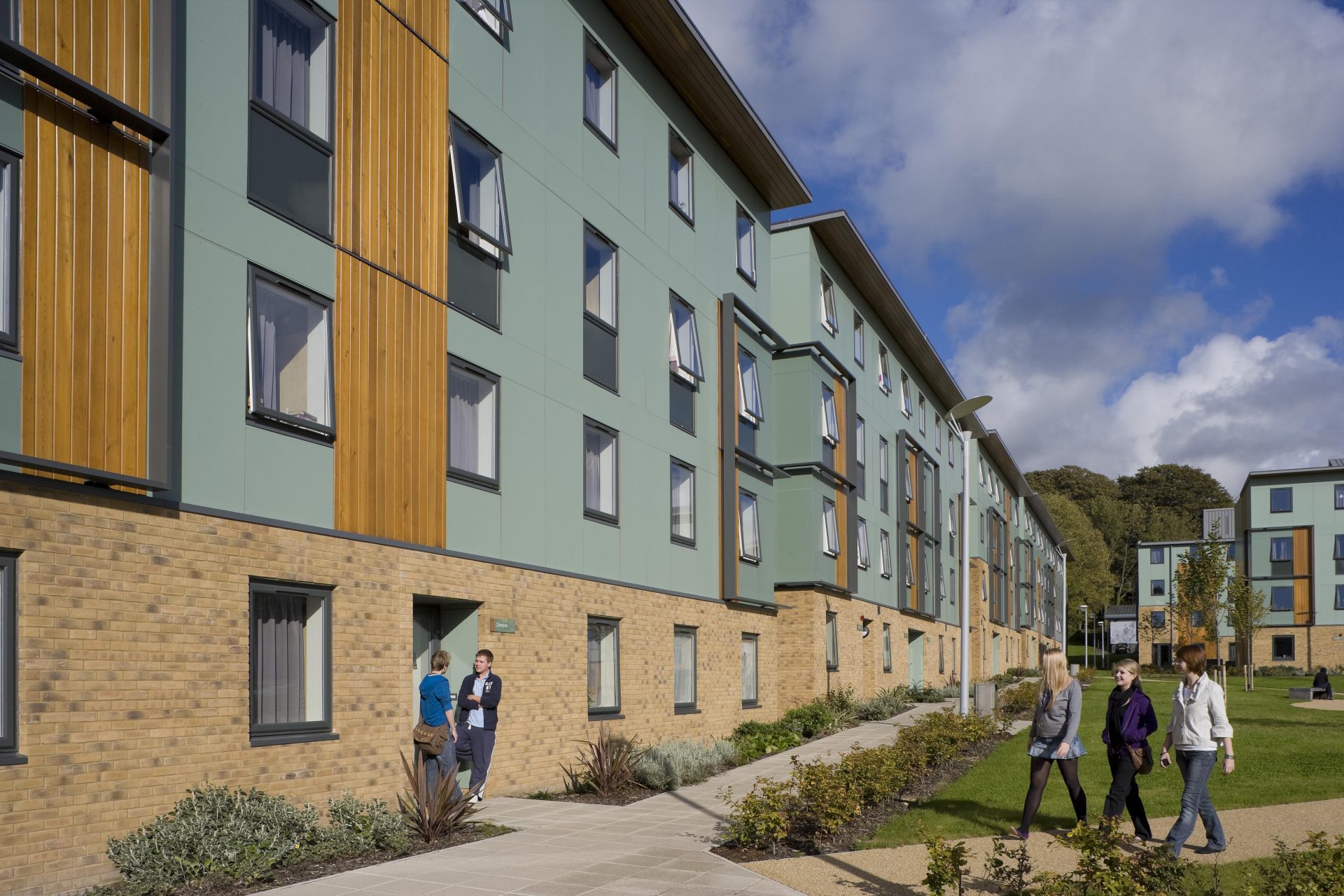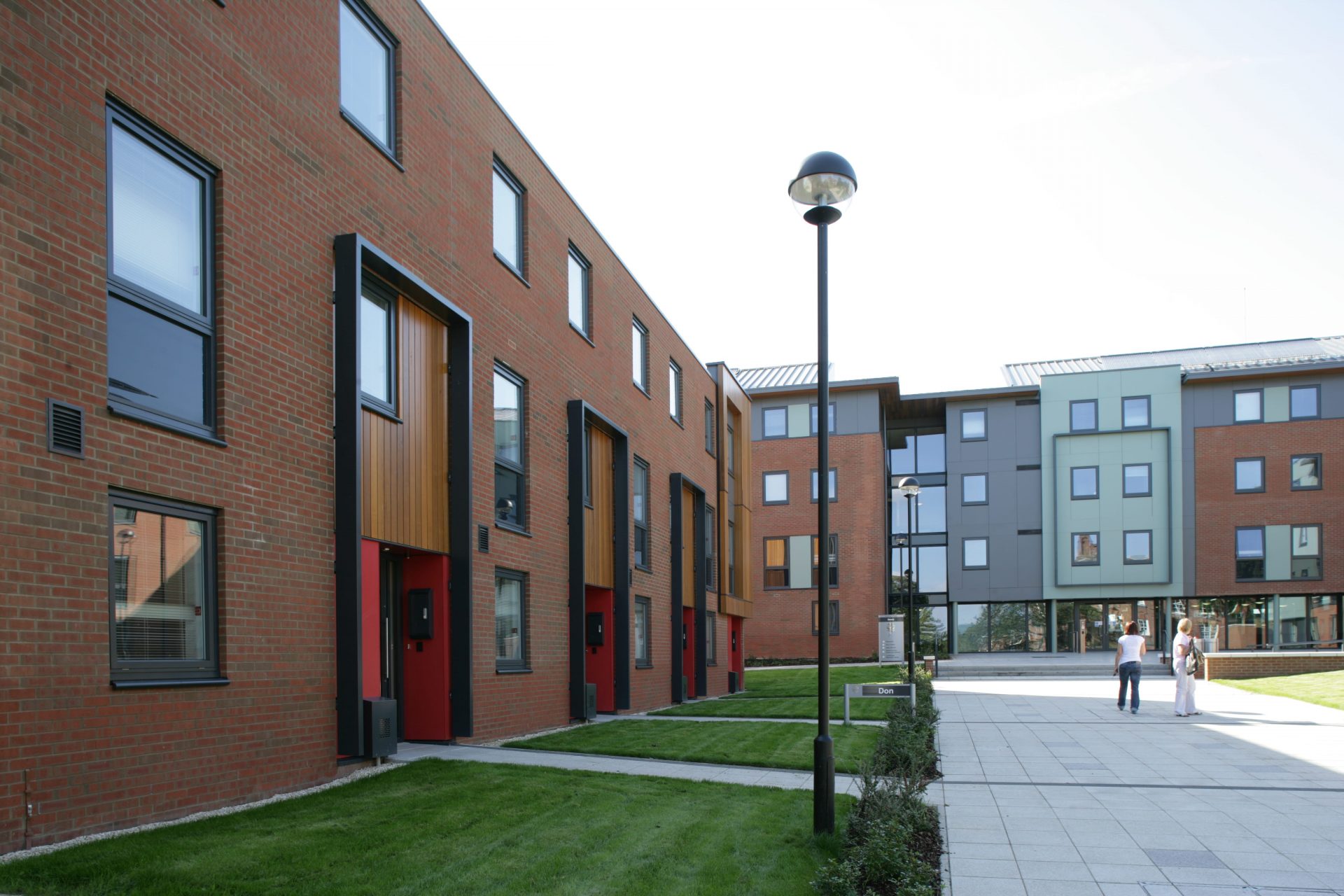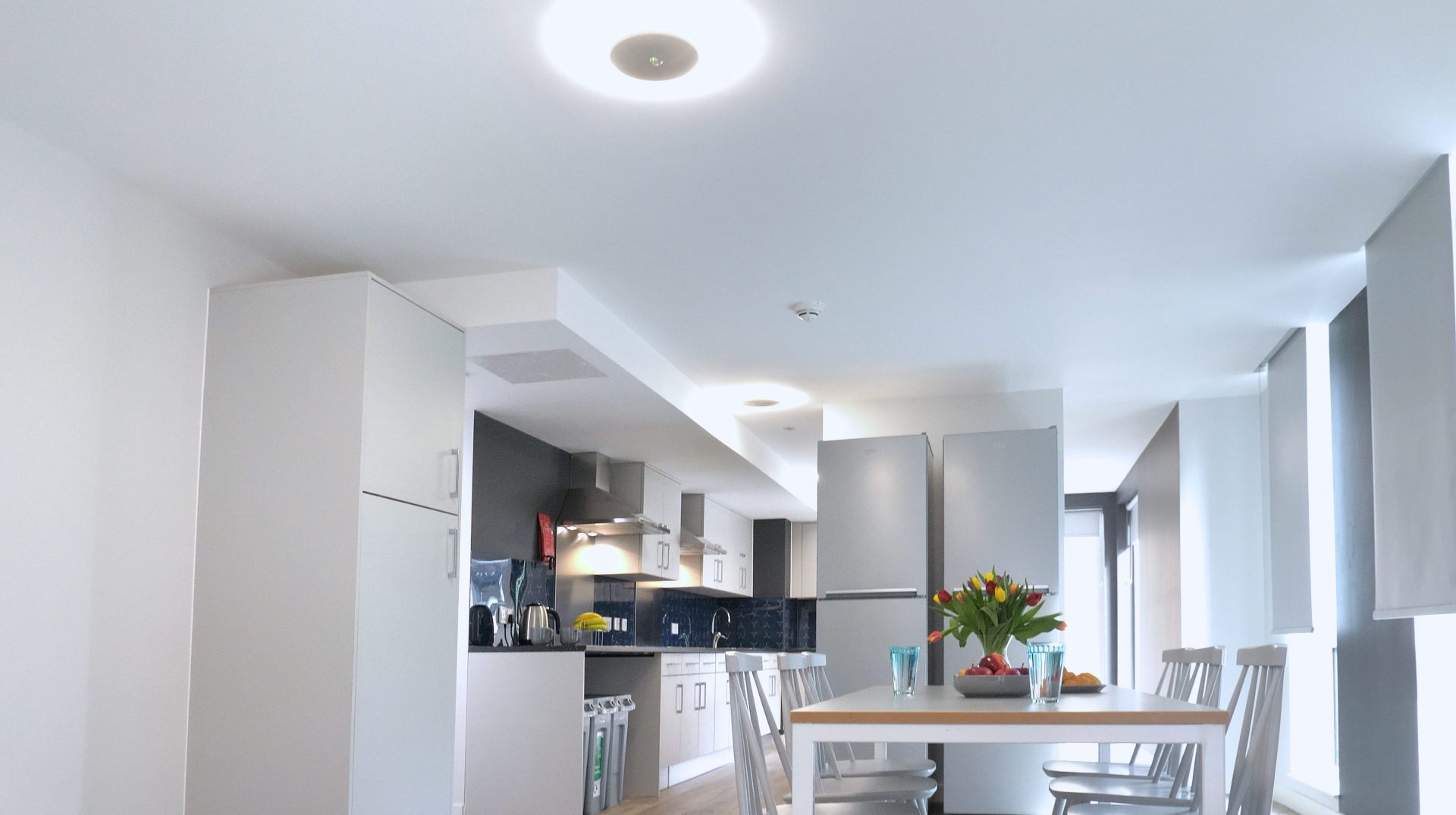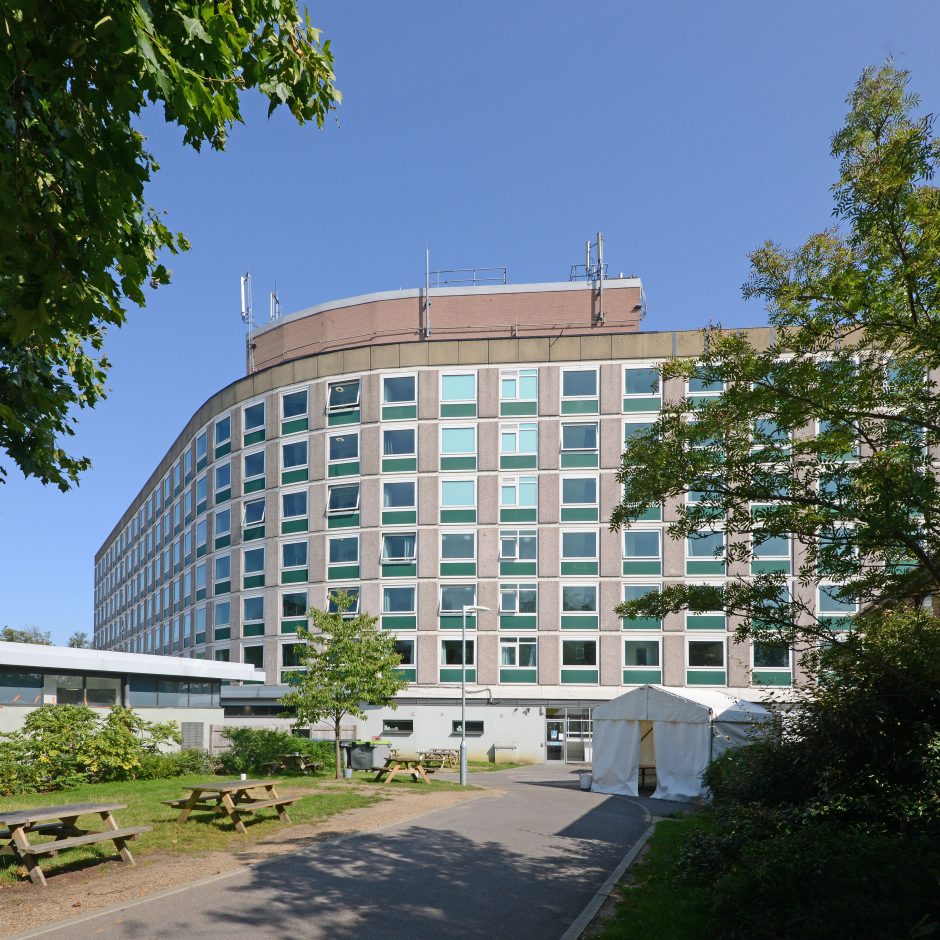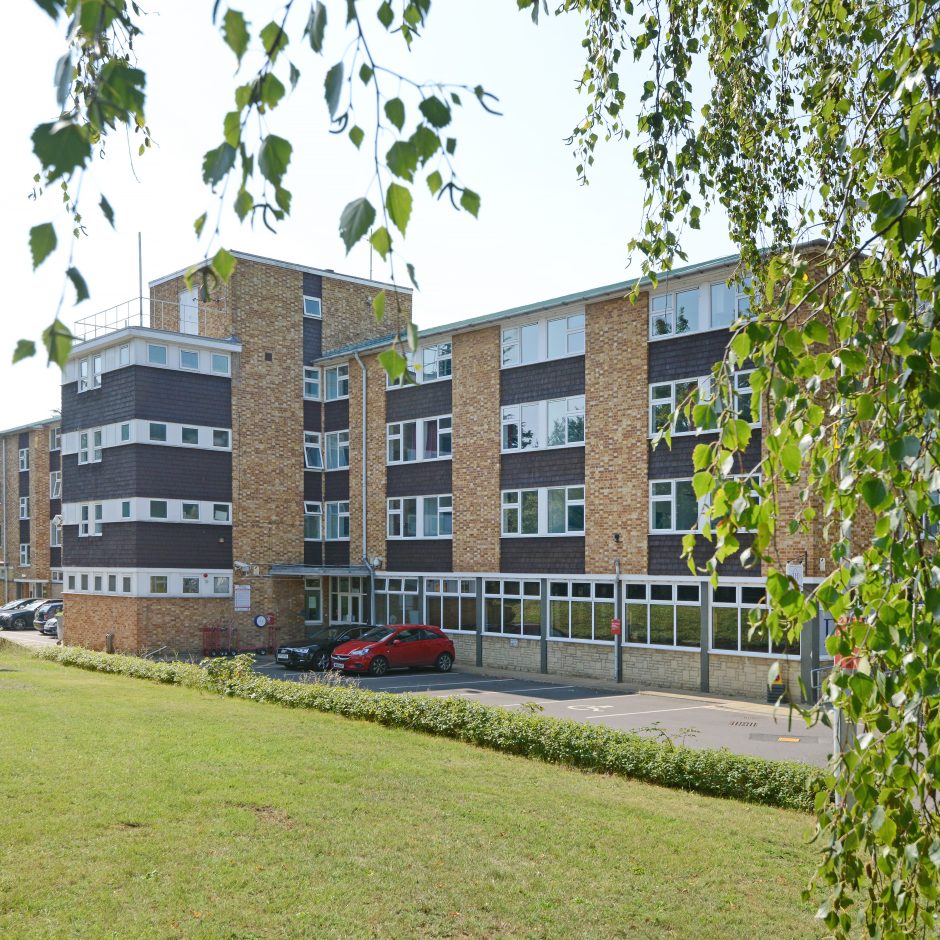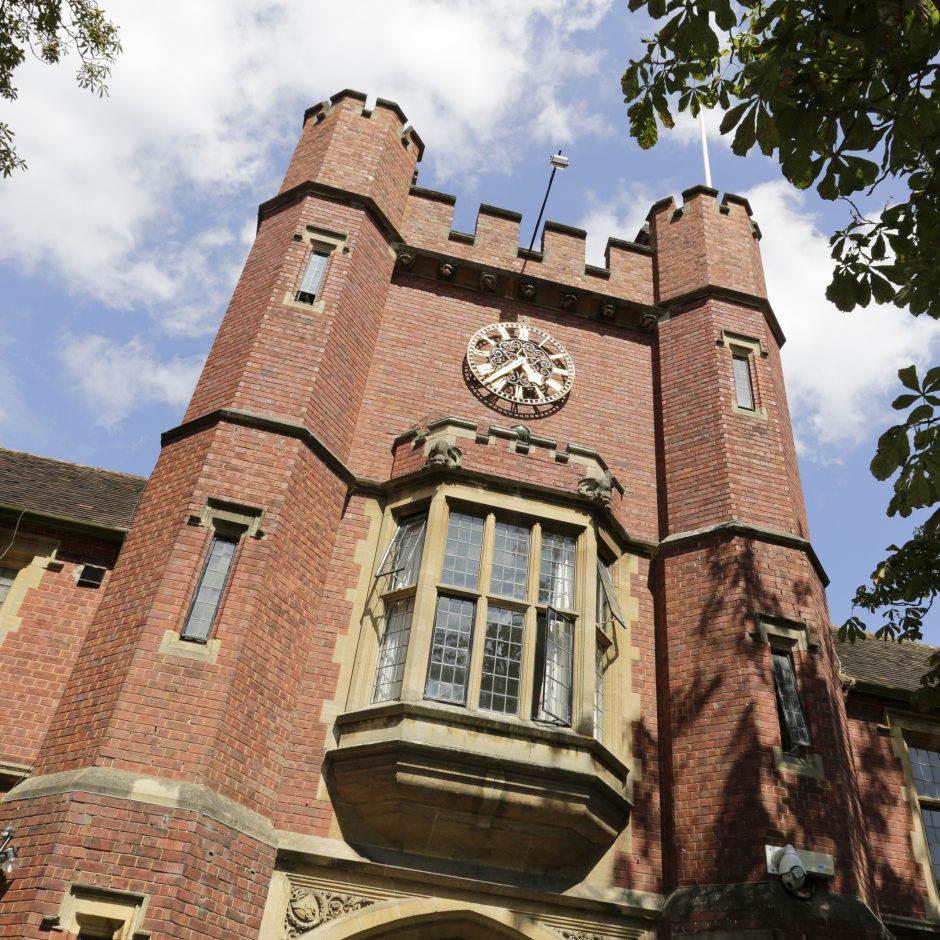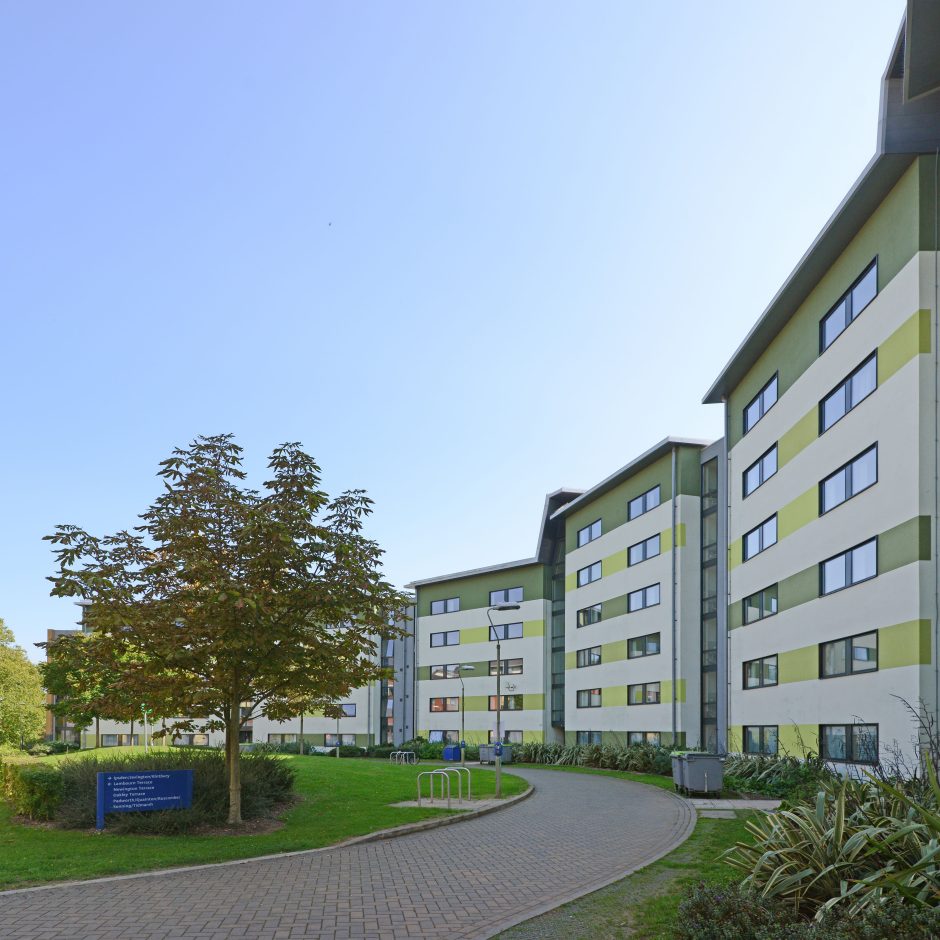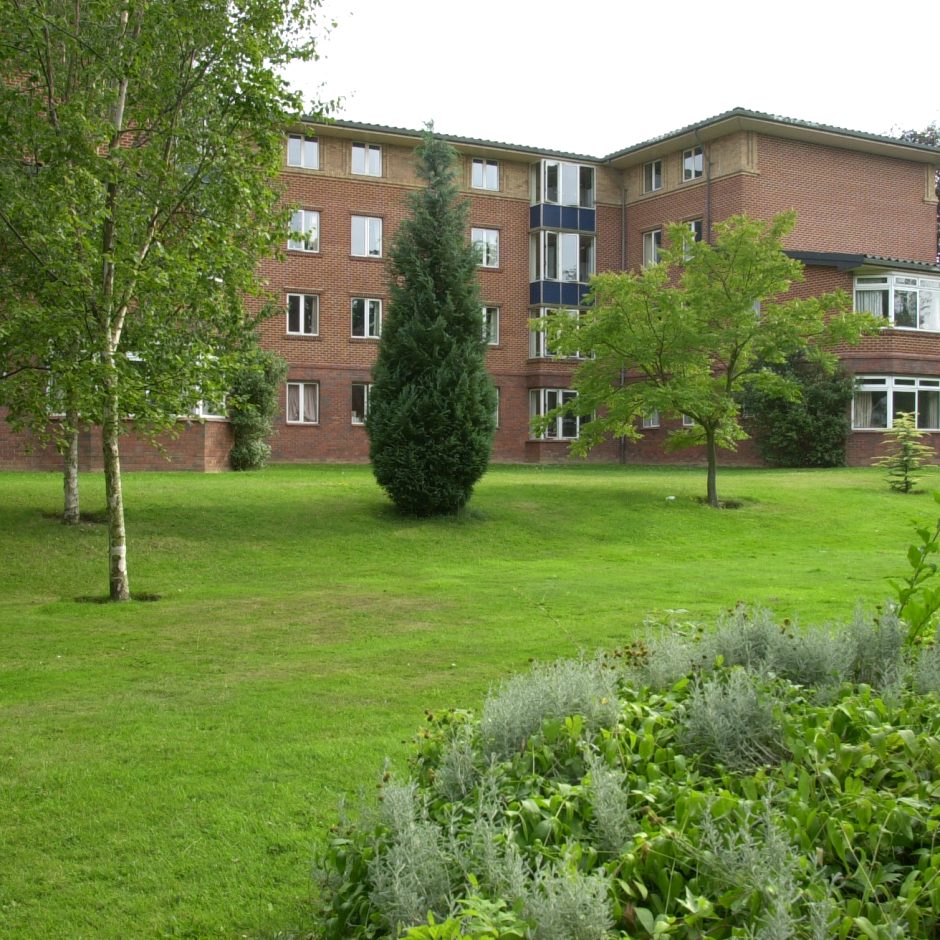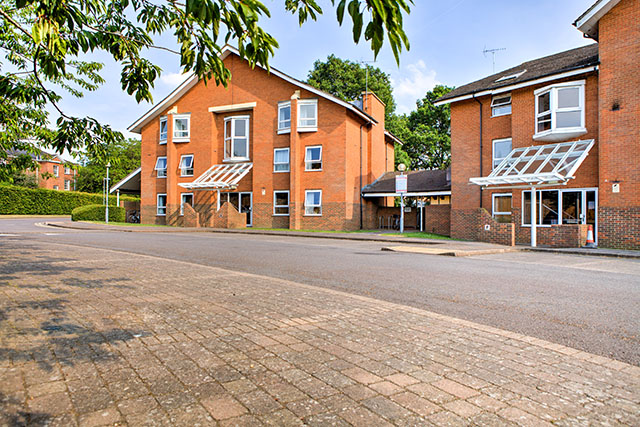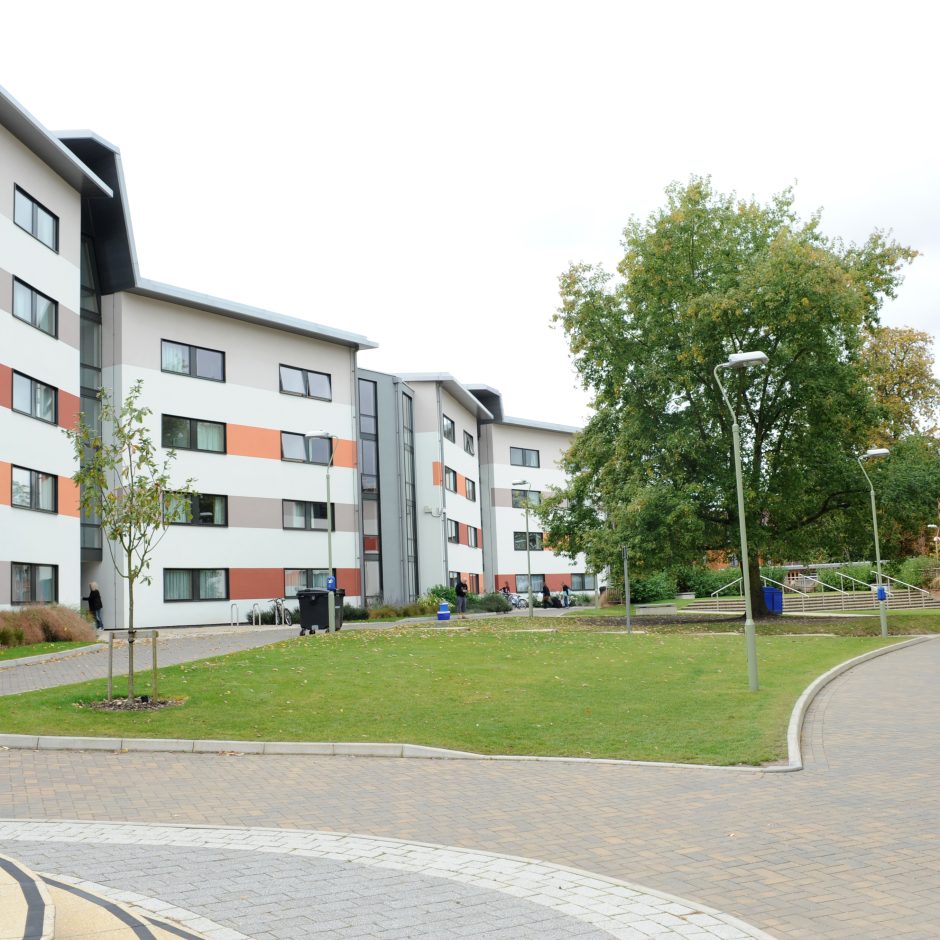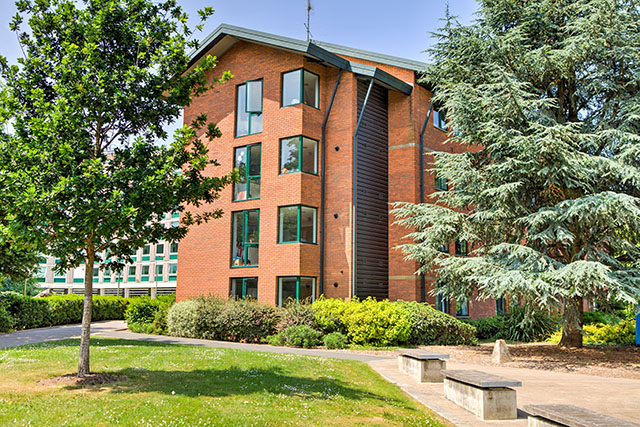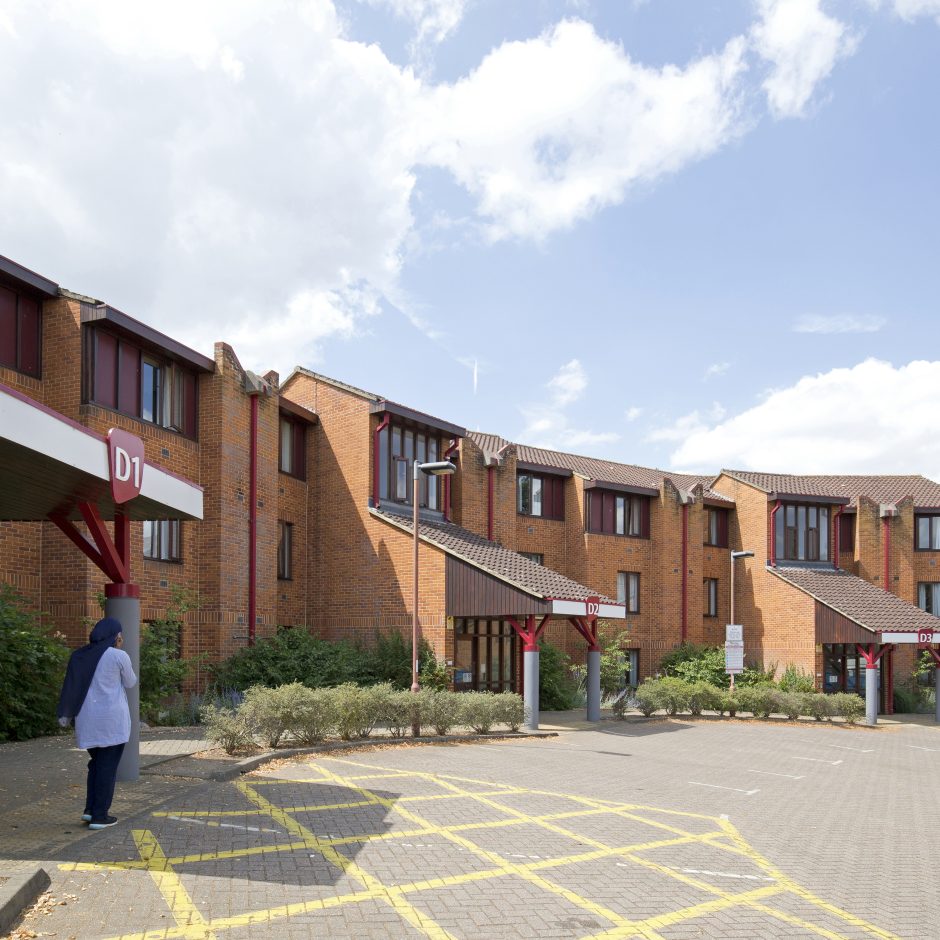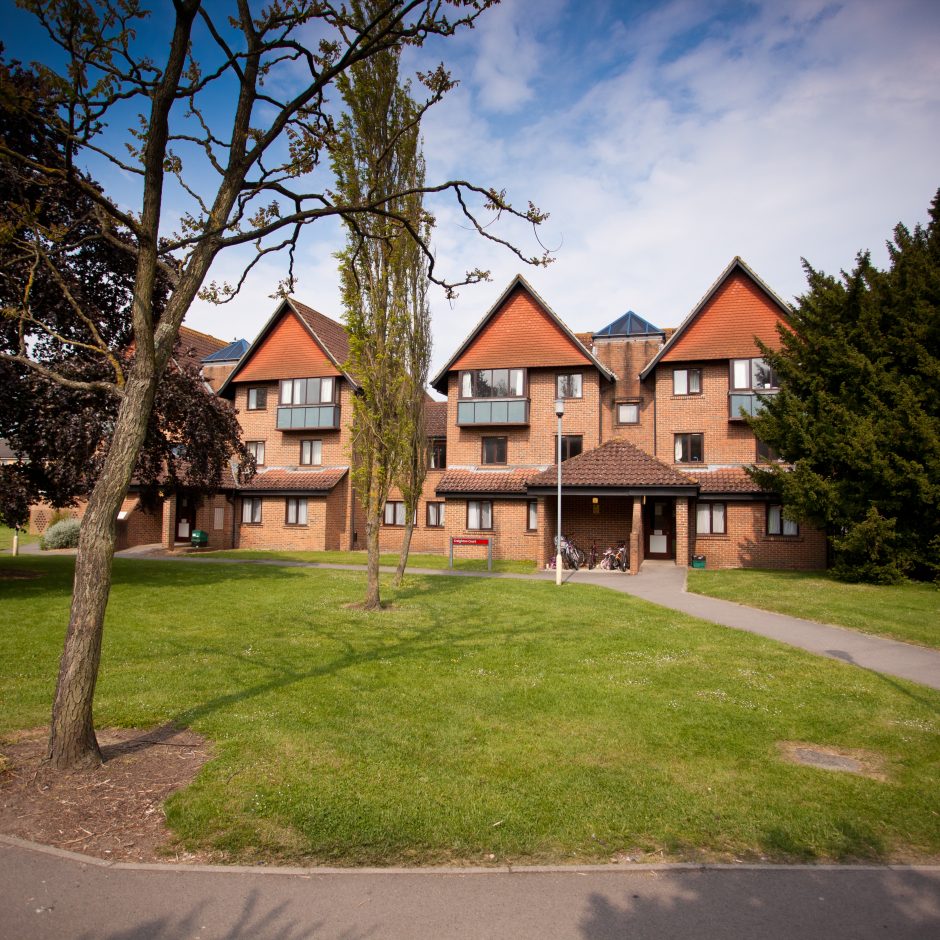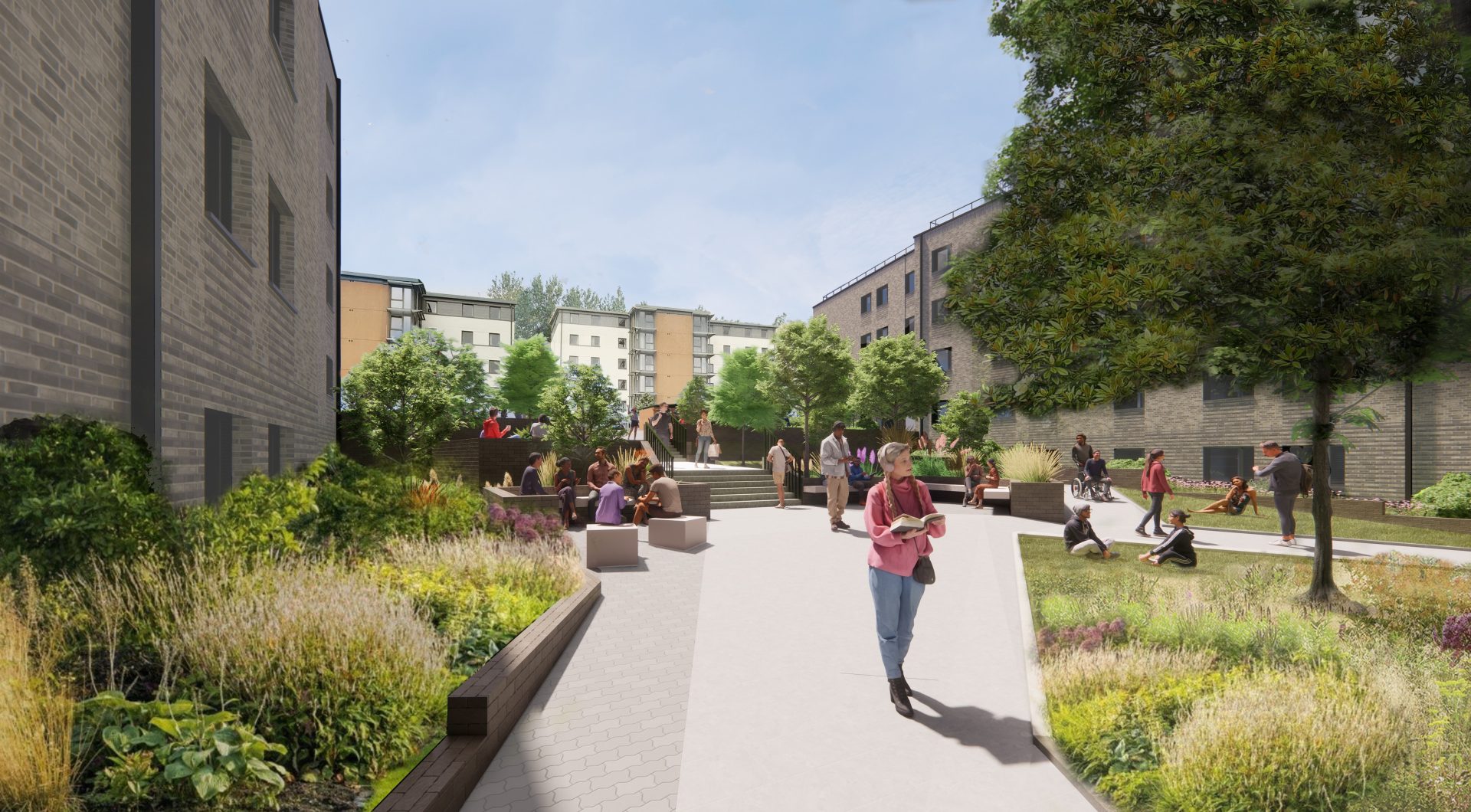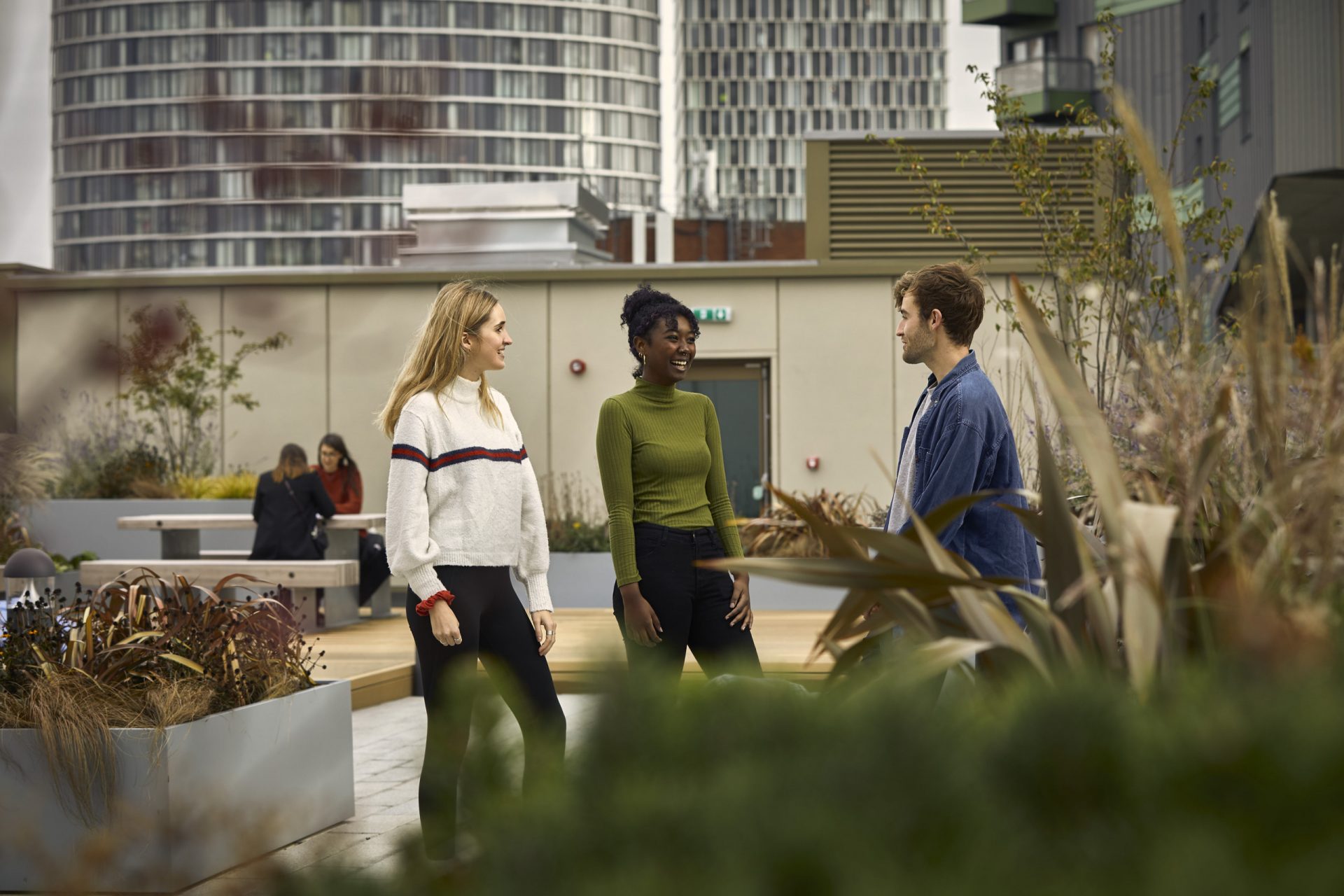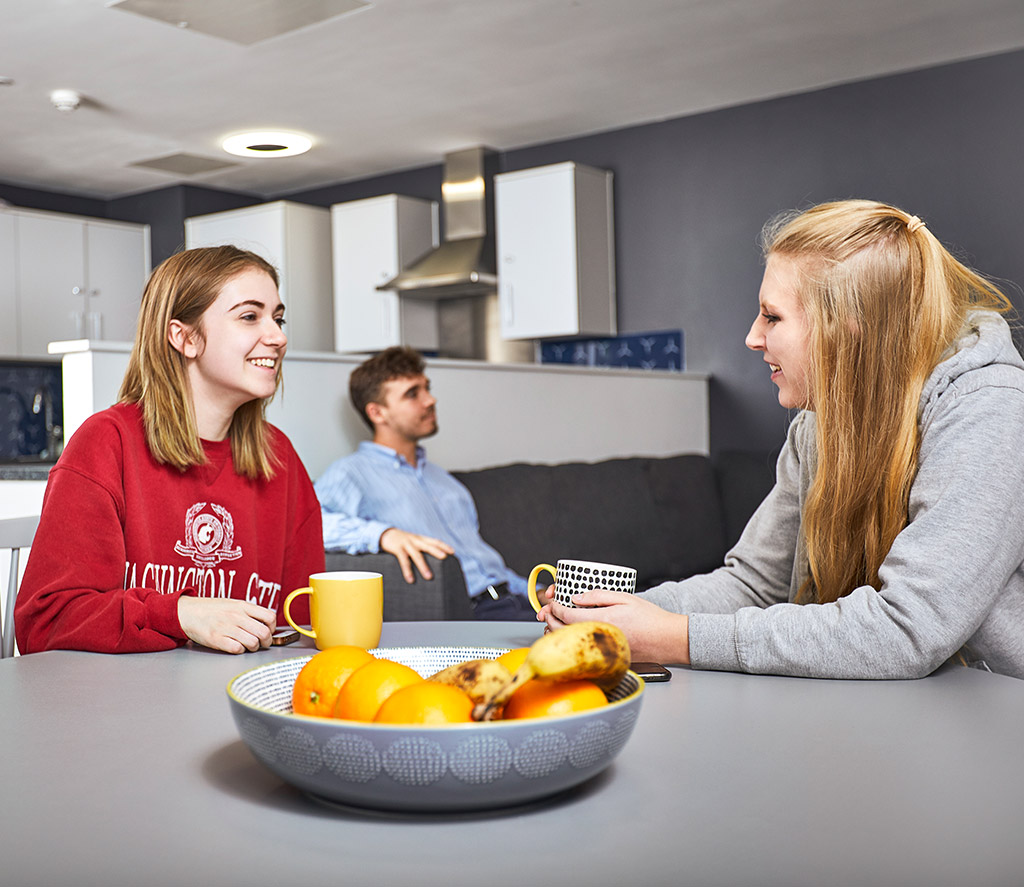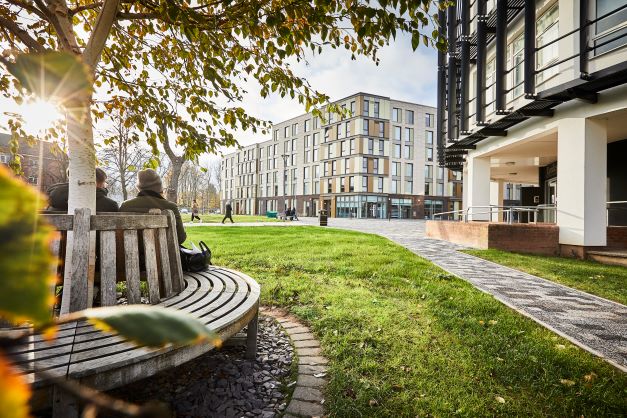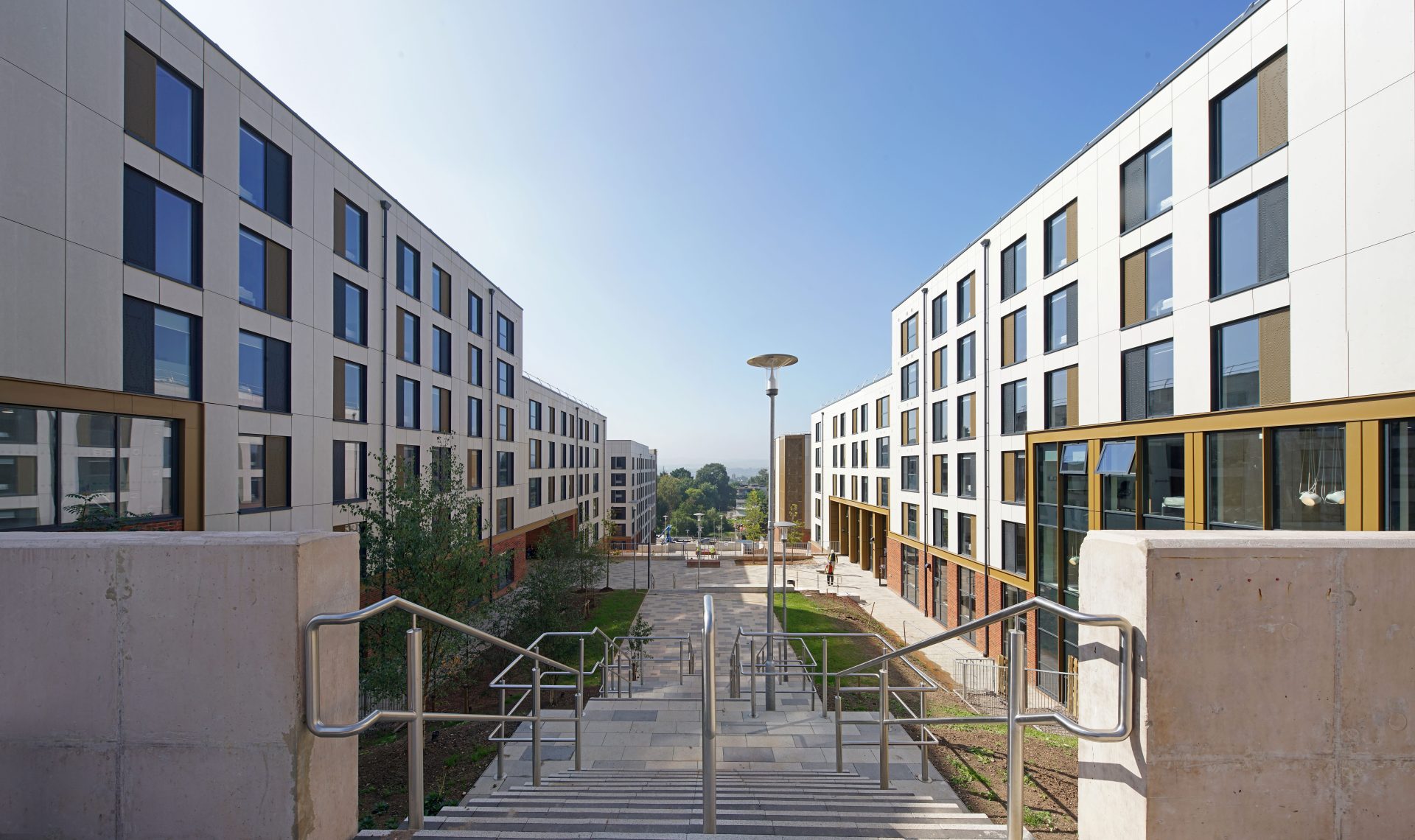Highlights:
- Playing an important role in helping the UK achieve its Net Zero emissions target by 2050
- Sustainability initiatives to improve buildings and reduce utility consumption
- Renewable energy in new buildings
- Installation of water flow restrictors
- Improved heating management system and insulation
- Recycling and energy saving campaigns for students and staff
- LED lights reducing energy usage by up to 15%
- Thermostatic radiator valves making a 700,000kwh year-on-year saving
Student accommodation and construction more widely has an influential part to play in helping the UK to achieve its Net Zero 2050 emissions target. Because of this, sustainability has been and continues to be a key priority for UPP in both existing and new buildings.
At the University of Reading, UPP has spearheaded several energy and water saving initiatives to reduce resources and encourage sustainable behaviour. Across the campus, thorough surveys and assessments of UPP’s buildings help identify the most effective strategies to reduce utility consumption. Where buildings are listed, we have implemented innovative initiatives to reduce consumption without changing external facia. For our most modern BREEAM excellent building, Bridges Hall, sustainable provisions were built into the design through the addition of solar thermal as a greener way to supply heating and hot water.
A particular focus has been to identify equipment that use a lot of energy and find ways to control these better. This has been achieved through a number of projects, for example changes to lighting management systems and the upgrading of old compact fluorescent tubes to Light Emitting Diodes (LEDs) have significantly reduced the amount of electricity used by up to 15%. Similarly, increasing loft, wall and window insulation and the addition of water restrictors have proven to be successful ways to minimise utilities consumption across the estate.
In 2013, more than 800 radiators on site had Thermostatic Radiator Valves (TRVs) fitted. This has shown a significant positive impact on gas consumption, with a reduction of around 10% between buildings with TRVs compared to those without in the first twelve months of installation. This yields a 700,000kwh year-on-year saving. Similarly, at St George’s Hall, which is the only hall containing electric panel heaters, Prefect control boxes have been fitted to each. This change generated a reduction of 103,440kwh in the ten-month period following installation, culminating in a 13% energy saving.
We recognise that student and employee behaviours play a critical role in the sustainability of our buildings. To support this, we hold year on year campaigns that encourage students to minimise their energy use and raise awareness for environmental protection. During Freshers’ Week, Green Ambassadors are recruited as volunteers to help with raising awareness, amongst students. Employee training is also essential to helping with energy consumption, and so 160 employees attend an annual refresher on Environmental Awareness, with employee inductions on the topic a mandatory action upon starting employment at UPP in Reading.





